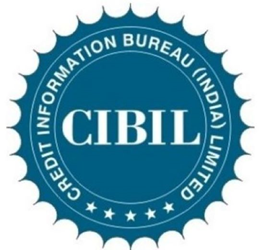CIBIL Full Form | What is Credit Information Bureau (India) Limited
What is the full form of CIBIL
CIBIL: Credit Information Bureau (India) Limited

CIBIL stands for Credit Information Bureau (India) Limited. It is the first credit information company in India established in August 2000. This company collects and maintains credit scores of individuals as well as commercial entities. It deals with borrowing and payments related to loans and credit cards.
CIBIL is also known as the Credit Bureau. It is licensed by the RBI and governed by the Credit Information Companies Regulation Act, 2005. It takes help of its associated partners such as members of bank and credit institutions to collect this information. The associate partners provide information on a monthly basis. Based on this information, CIBIL creates a Credit Information Report (CIR) and CIBIL credit score of an individual. This report is shared with credit institutions to help them evaluate and approve loans.
Credit Information Report (CIR) and CIBIL credit scoreA CIBIL credit score is a three-digit number that represents the summary of your entire credit history. It is prepared based on the information provided in your credit information report. This score generally ranges from 300 to 900. Thus, CIBIL plays an important role in India's financial system as it helps banks and other financial institutions manage their businesses and also helps customers secure credit on fair terms.
Why is CIBIL Credit Score important?
CIBIL plays a major role in the approval of a loan. If you don't have a satisfactory CIBIL score, most of the banks may not consider you eligible for the loan. When you submit a loan application, the bank first checks your credit score and credit history. If you have a low credit score, the bank may conclude that you have a bad credit history and thus it may reject your loan application. On the contrary, if the credit score is good, the bank may easily approve your loan. So, the higher the score, the higher the chance that your loan will be approved.
Benefits of a Good CIBIL Score:
- Eligible for Loan: CIBIL score decides your eligibility for a loan. A good CIBIL score makes you eligible for getting a loan easily.
- Discount on interest rate: If your CIBIL score is high, you may negotiate for the better interest rate for the loan.
- Faster loan approval: Loan approval will be quick and easy. The banks or lenders may offer you a pre-approved loan or a credit card without annual fees.
- Higher credit limit on credit cards: A good CIBIL score suggests that you are a responsible borrower and have been making loan payments consistently. So, you can get credit cards with higher credit limits easily.
- Loans with longer tenure: You can request for a longer tenure for loan payment, e.g., a 7-year car loan or a 25 year home loan.